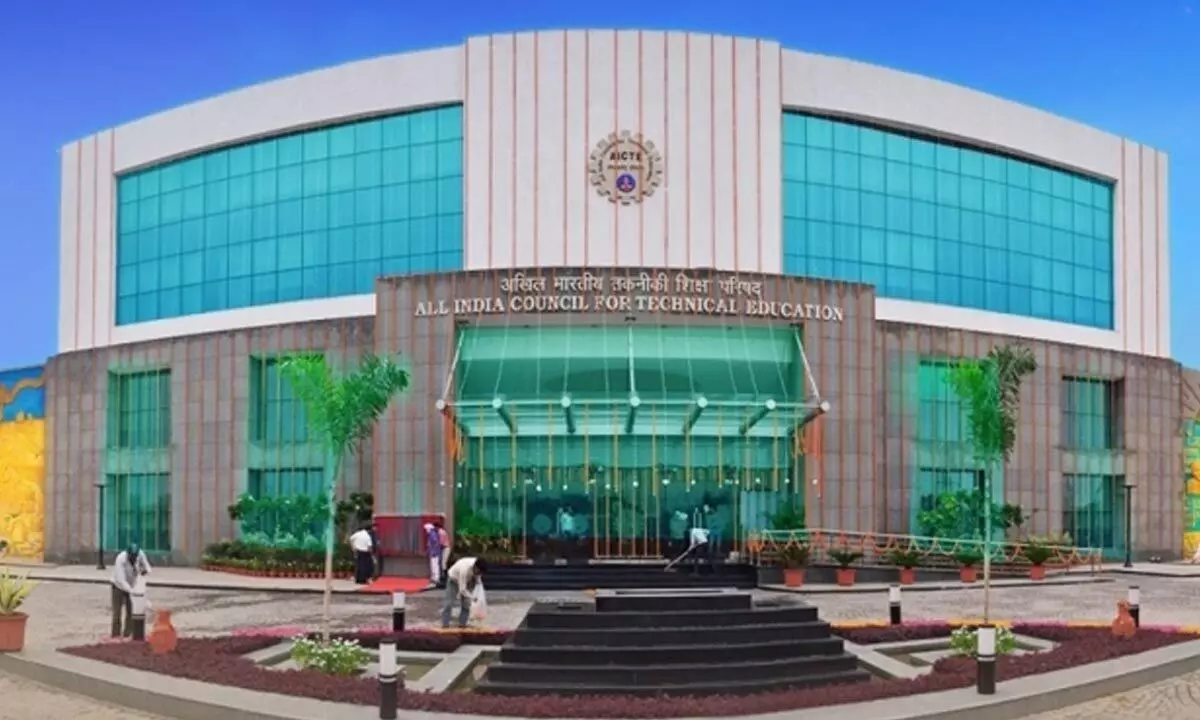AICTE Chief: 600 colleges to offer UG-PG semiconductor tech courses

Over 600 engineering and technical institutions across the country will soon start offering "world-class" courses on semiconductor technology, All India Council for Technical Education (AICTE) chairman T.G. Sitharam has said.
New Delhi: Over 600 engineering and technical institutions across the country will soon start offering "world-class" courses on semiconductor technology, All India Council for Technical Education (AICTE) chairman T.G. Sitharam has said.
The AICTE is a national-level apex advisory body to conduct a survey on the facilities available for technical education and to promote development in the country in a coordinated and integrated manner. It comes under the Union Education Ministry and is also responsible for accrediting all postgraduate and graduate programs, under specific categories of technology.
There was a moratorium on the opening of new engineering colleges in the country till 2024, which, the AICTE chief - during an exclusive conversation with IANS - said, has been revoked now.
Here are excerpts of the conversation:
What are the new courses, which the AICTE will introduce to meet the global standard?
Sitharam: We are working on new-generation courses on cutting-edge technologies such as semiconductors. We are working on it, and soon there will be more than 16,000 seats available for undergraduate, postgraduate and diploma-level courses on semiconductor technology. There are around 600 technical institutions, which will provide courses on semiconductors.
AICTE has banned the opening of new engineering colleges in India till 2024, what is the status now?
Sitharam: Yes, there was a ban on the opening of new engineering colleges across India till 2024 but we have reviewed our decision and now, we have revoked the moratorium.
It means new engineering colleges can be established anywhere in the country by following the rules and regulations set by the AICTE. Even permissions for the opening of 250 new engineering colleges and technical institutions have been granted recently after the moratorium was revoked by the AICTE.
Thousands of students dropped out of higher educational institutions (HEIs), and even some suicide incidents too were reported in HEIs. Have you taken any initiative to address these student-related problems?
Sitharam: We are coming up with a 'Mentor-Mentee Programme'. Under this programme, there will be a mentor for students in every institution so that interaction beyond academics can be promoted.
To deal with their issues and stress, these mentors will discuss with students their personal issues, family issues, issues related to the institution and personal well-being. We have a policy ready on this and it will be approved in the next council meeting.
How AICTE is simplifying the process of granting approval to new technical institutions?
Sitharam: We have simplified the approval process for institutions. Under this initiative, we have started conducting inspections of technical institutions through online mode. Over 9,000 institutions have undergone this approval process and all eligible institutions are getting hassle-free approvals.
What is the status of core engineering courses? There were reports that many seats remain vacant in many engineering colleges.
Sitharam: Students are showing their interest in core engineering courses. Our data says that there is a 10 per cent increase in students taking admission to core engineering courses after the Covid-19 pandemic.
Is there any initiative to make core engineering students compatible with new-age technologies such as artificial intelligence and robotics?
Sitharam: Core engineering students are allowed to do minor degree courses in artificial intelligence, data science, robotics, cyber security, blockchain, logistics, nanotechnology, semiconductor and all emerging areas.
This will not only make our students job-ready but it will also empower them to become job creators.
Do colleges have a sufficient number of trained core engineering teachers?
Sitharam: The availability of trained teachers is a big issue at core engineering colleges. The AICTE took the initiative to train teachers through short-term certification programmes.
What steps are you taking to promote innovation and increase the filing of new patents?
Sitharam: We have decided to close our regional centres and convert them into 12 'Indovation' centres (India's Innovation), to promote ideation, innovation etc. These will be first-of-its-kind centres in India. Their mandate is to promote technology transfer, handhold innovation and ideation. We are also supporting patent filing. Due to our efforts, the patent filing fee has come down from Rs 28,000 to Rs 1,500.
With AICTE efforts, we have approx 8,000-plus patents. Now, we are working on a policy of free patent filing. We also have a 'YUKTI' repository, to transfer technologies and avoid duplication and to collate technologies.
As many as 7,500 innovation councils have been established in universities and colleges across the country. In two-three years, we are targeting to have an innovation cell in every institution and college.














